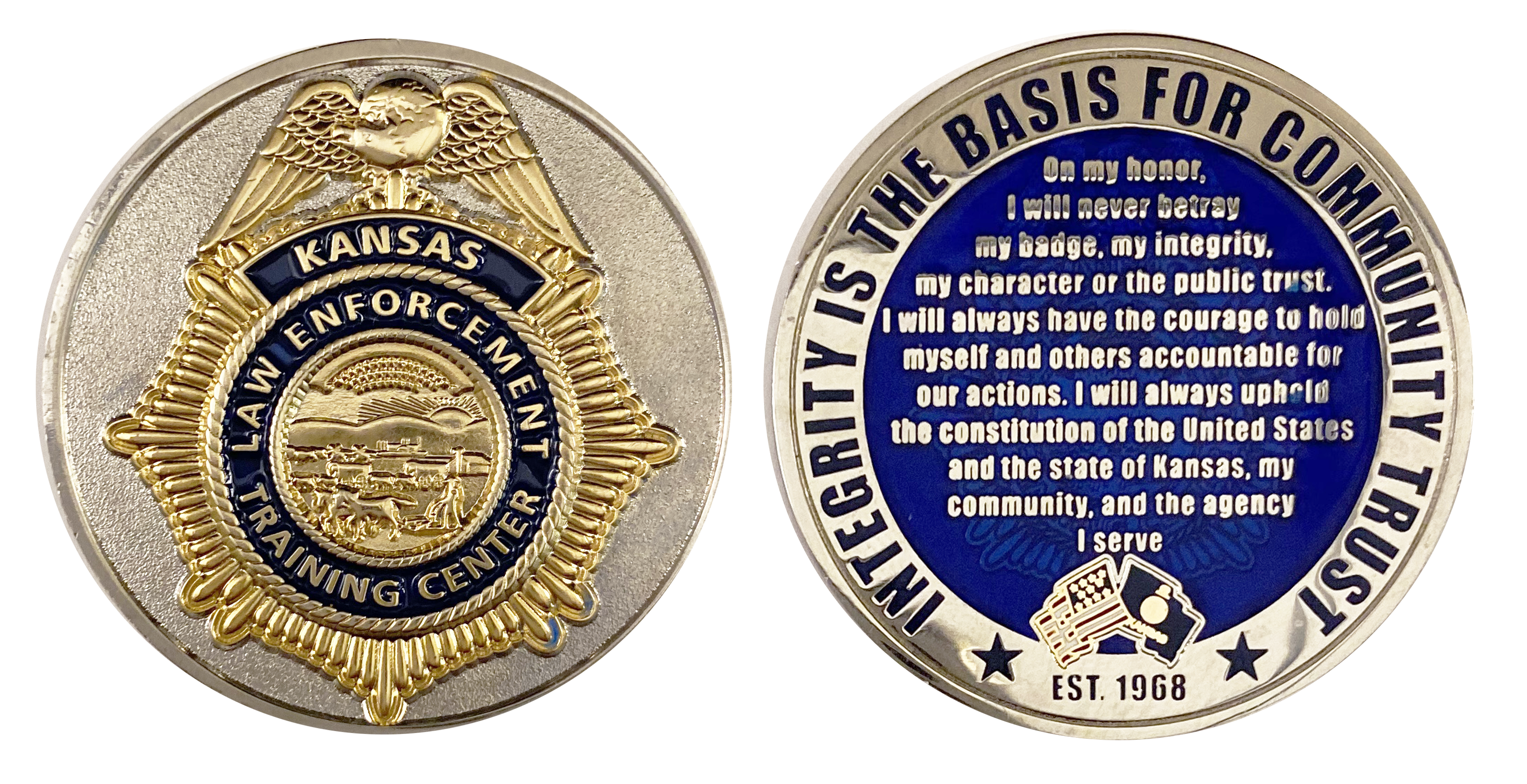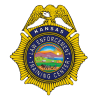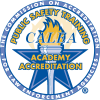About

KLETC
To learn about KU's talent acquisition process click on the following link: https://humanresources.ku.edu/recruitment
Role Player
This is a POOL- Part time- Temporary position located at the Kansas Law Enforcement Training Center in Yoder, Kansas.
The role player will facilitate and participate in basic training scenarios as assigned. Law enforcement experience is not required. This position must be physically and emotionally capable to perform the essential functions and demands of their assigned work in a safe and effective manner. For additional information and to apply, visit employment.ku.edu/staff/31111BR.
KU is an EO/AAE. All qualified applicants will receive consideration for employment without regard to race, color, religion, sex (including pregnancy), age national origin, disability, genetic information or protected Veteran status.
Established by the Kansas Legislature in 1968, KLETC serves as the central law enforcement training facility for our state and as headquarters for all law enforcement training in Kansas.
KLETC is located at the former naval air station, which is situated south of the City of Hutchinson and west of the City of Yoder in Reno County, Kansas. Its mission, as expressed in the Law Enforcement Training Act, K.S.A. 74-5601 et. seq. is “the promotion and development of improved law enforcement personnel and procedures throughout the state, and the training center shall offer to qualified applicants such programs and courses of instruction designed to fulfill this end.”
KLETC directly trains the overwhelming majority of municipal, county and state law enforcement officers in Kansas, and oversees, supervises and monitors the training of the remaining officers at eight authorized and certified academy programs operated by local law enforcement agencies.
Moreover, no municipal, county or state law enforcement agency pays any tuition in connection with the training and/or room and board furnished to their officers by KLETC during the mandated basic training.
Kansas law enforcement officers must satisfactorily complete a minimum of 560 hours of basic law enforcement training to attain their law enforcement certification. Currently, the 560-hour program is conducted in a 14-week format. Additionally, to maintain law enforcement certification each officer must obtain 40-hours of continuing education annually in subjects related directly to law enforcement.
KLETC employees are dedicated and committed to active partnerships with the law enforcement community by providing comprehensive, progressive, quality training and support for Kansas law enforcement.
Vision
Providing comprehensive, progressive, quality training and support for Kansas law enforcement.
Mission
As expressed in K.S.A. 74-5603, "the promotion and development of improved law enforcement personnel and procedures throughout the state, and the training center shall offer to qualified applicants such programs and courses of instruction designed to fulfill this end."
Core Values
- devoted to integrity and excellence in every aspect of our work
- views employees as our most valued asset
- sensitive to the competing demands of family and work
- recognizes individual roles in the achievement of organizational goals
- committed to efficient resource management and effective delivery of services
- dedicated to active partnerships with the law enforcement community
- responsive and accountable to those we serve
KANSAS LAW ENFORCEMENT TRAINING CENTER
HUTCHINSON
Main Campus
11009 S. Hornet Rd
Hutchinson, Kansas 67501
Directions to KLETC
Download the visual Campus and Building Directory
DODGE CITY KLETC Regional Site
236 San Jose Dr., Room 17
Dodge City, Kansas 67801
HAYS KLETC Regional Site
2101 E 13th Street
Hays, Kansas 67601
PARSONS KLETC Regional Site
2103 Corning Ave
Parsons, Kansas 67357
KU EDWARDS CAMPUS Regional Site
12600 Quivira Road
Overland Park, Kansas 66213
All student records and transcripts maintained by KLETC are protected under the Family Educational Rights and Privacy Act (FERPA) 20 USC § 1232g. The Transcript Request Form authorizes the disclosure of educational records and releases KLETC from liability for such disclosure. KLETC student records are private documents and cannot be released without student (or former student) consent or court order.
By completing and submitting a Transcript Request Form to KLETC, students or former students can request the release of records identified in the request form to the person or agency identified in Box 3 of the form.
The Consent for Release of Educational Records and Release of Liability Form must specify:
1. student's information
2. records to be released
3. reason for the release
4. mailing address the records are to be sent; and
5. transcript request form by the student.
Students seeking copies of their KLETC student records and/or transcripts must complete and sign the Consent for the Release of Educational Records and Release of Liability Form.
A zip file containing all the documents you might need as a current or former student at KLETC can be found on the Basic Training page.
Mail the completed form to:
Kansas Law Enforcement Training Center
Attn: Registrar
11009 South Hornet Street
Hutchinson Kansas 67501
The Kansas Open Records Act grants you the right to inspect and obtain copies of public records created or maintained by public agencies in Kansas. The Open Records Act, K.S.A. 45-215 et seq., as amended, declares that it is the public policy of Kansas that "public records shall be open for inspection by any person." Public records are defined as "any recorded information, regardless of form or characteristics which is made, maintained or kept by or is in the possession of any public agency." The Kansas Law Enforcement Training Center is a unit of the University of Kansas Continuing Education and is classified as a public agency for the purposes of this Act.
Requesting a record from the Kansas Law Enforcement Training Center
Darin Beck, Vice Provost of the Kansas Law Enforcement Training Center is the designated official Custodian of Public Records, and requests for inspection and copies of records should be directed to him. The University of Kansas - Kansas Law Enforcement Training Center asks that you submit a written request to obtain public records. Please include the following information in your request:
- Name
- Mailing address
- Daytime telephone number
- Fax number, if applicable
- A specific description of the records you are requesting.
- Make your request as specific as possible to expedite the process.
Regular office hours on all business days, excluding Saturday and Sunday, are from 8 a.m. to 5 p.m. Records may be inspected during those hours. The Kansas Law Enforcement Training Center is closed on official holidays and other designated days as authorized by University of Kansas policy.
Mail your request(s) to:
Darin Beck, Vice Provost - Custodian of Public Records
Kansas Law Enforcement Training Center
11009 South Hornet Road Hutchinson, Kansas 67501
Charges and fees
Charges for the service shall be collected in advance. Fees shall be charged for the provision of access to and the copying of public records. Fees for copies shall equal the actual cost of furnishing copies, including the cost of staff time required to make them or supervise the copying. Fees for providing access to computer records shall include the cost of computer services, including staff time required. In accordance with this provision and the Kansas Open Records Act, K.S.A. 45-215 et seq., the following fees may be charged for providing access to or furnishing copies of public records:
- Photocopies: $.20/page
- Scanned data: $.25/page
- Mailing: $1.50
- Postage: Actual cost
- Fax: $.80/page
- CD/Floppy: $1.25/each
- Access/Inspection Costs: $33.00/hour
- Computer Access: $50/hour
- Manager/Legal Counsel Preparation/Review: $65.00/hour
Have questions or need additional information regarding the University's Open Records Act policy? Visit: The Kansas Open Records Act
Without fanfare or recognition, nearly 8,000 municipal, county and state law enforcement officers employed by over 430 agencies protect and serve communities all across our great State of Kansas. On July 27, 2017, with over 150 law enforcement officers, friends, KU officials, and KLETC staff in attendance, we unveiled and dedicated a cast bronze statue to honor those past, present, and future Kansas peace officers protecting and serving our Kansas communities.
We recognize our donor family, Drs. Robert J. & Evelyn J. Senecal of Lawrence KS for making THE PROTECTOR statue become reality. A sincere thank you is extended to KU Chancellor Doug Girod and Kansas Attorney General Derek Schmidt for helping us dedicate and unveil THE PROTECTOR.

A challenge coin is a small coin or medallion, bearing an organization’s insignia or emblem and carried by the organization’s members. Traditionally, they are given to prove membership when challenged and to enhance morale. They are also exchanged in recognition of visits to an organization.
The KLETC challenge coin is given out on special events, to graduates of the KLETC basic training program, and to distinguished guests that visit the KLETC campus.
In compliance with promises made to the legislature in 1986, KLETC employed an architect to develop a master plan for the facility. This plan encompassed both repairs and rehabilitation to the existing facility as well as the construction of desperately needed additional space. Construction of the multipurpose/gymnasium, locker rooms, restrooms, and administrative offices was completed in 1991. Two new classroom/seminar rooms, as well as a classroom/conference room, were completed in 1993. A complete remodeling of the firearms range was completed in 1995. It included the construction of a range house with a classroom, firearms cleaning area, ammunition storage area, and two offices, plus the construction of a range tower building for the Range Master to control and monitor training at the range. Construction of a new, four-story, 32,650 square foot, 107-bed residential hall commenced in March 1996 and was completed in September 1997. Renovation of the kitchen/dining areas and instructor office space commenced in October 1997 and was completed in July 1998. Reconstruction of KLETC’s existing parking lot at the main facility and at the firearms range commenced in the spring of 2001 and was completed in October 2001. The renovated parking facilities feature a parking capacity of over 200 vehicles and provide additional security lighting at the main facility. In October 2002 the residential hall sleeping capacity expanded from 107 to 142 beds to accommodate increased enrollments.
Because additional office and classroom space was needed, in late 2003 the University of Kansas purchased the former 20,000 square foot Collins Corporation office building located a short one-half block from KLETC’s main campus facilities. Following the completion of a renovation and construction project to create three new spacious classrooms and the revitalization of existing office space, KLETC moved all administrative and support staff functions to this building in September 2004.
In 2006, the Kansas Legislature and Kansas Board of Regents approved an architectural program for KLETC. The architectural program was divided into two construction phases. Phase I included a new 63-room residence hall with 126 sleeping beds, a multipurpose training facility capable of being divided into three separate training spaces, and expansion of the existing dining facility to accommodate additional student officers. Phase I was completed in June 2009. Phase II, a 1.78-mile emergency vehicle driver training course w/skid pad, training classroom and vehicle storage buildings, a tactical shooting training building, and other associated facilities improvements was completed in late spring of 2010. Total legislative authorization for both Phases: $16.4 million. The 2006 Legislature increased the municipal and district court docket fee remittance levels to fund the architectural plan and provide additional operations funding for the Center.

In July 2024, the Kansas Law Enforcement Training Center was awarded initial accreditation as a Public Safety Training Academy through CALEA at the Winston-Salem, NC international conference. KLETC is now in the 1st reaccreditation 4-year process and will undergo another on-site assessment in 2028.
CALEA provides a public portal to receive comments regarding KLETC's compliance with CALEA standards, engagement in the service community, delivery of public safety services, and overall candidacy for accredited status. Comments can be in the form of commendations or concerns. The overall intent of the accreditation process is to provide the participating agency with information to support continuous improvement, as well as foster the pursuit of professional excellence.
